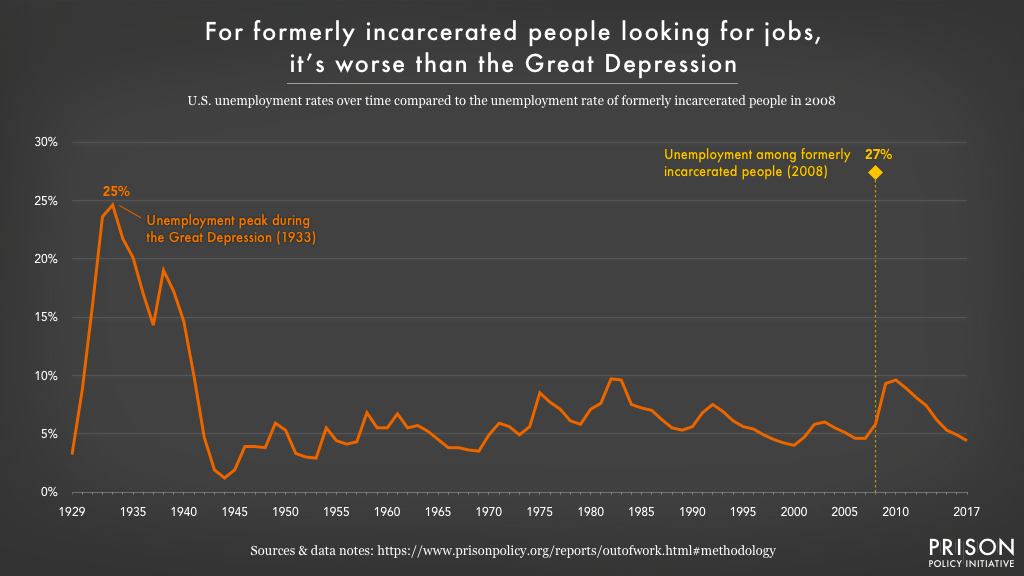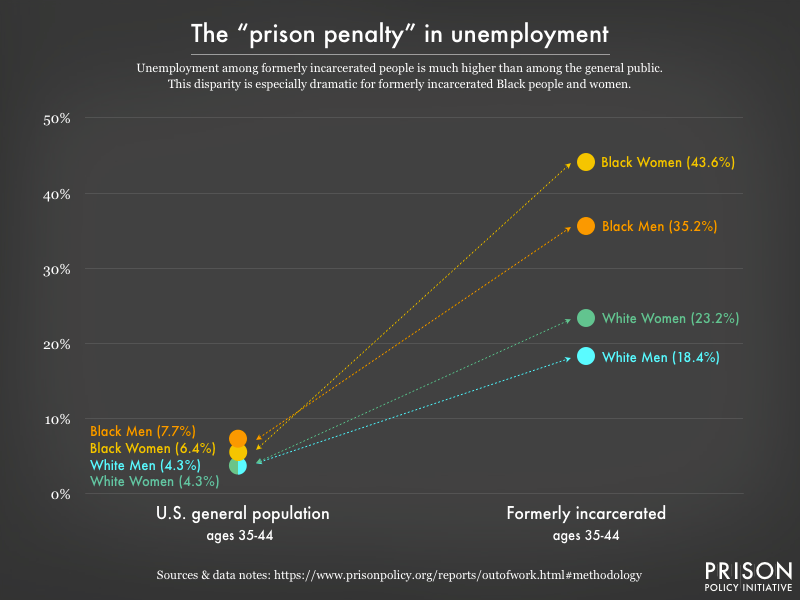New report, Out of Prison & Out of Work, calculates the first unemployment rate for formerly incarcerated people
Formerly incarcerated people overwhelmingly want to work, but they face huge obstacles in the job market.
July 10, 2018
Easthampton, Mass. – For the 5 million formerly incarcerated people living in the U.S., landing a job means more than just personal success: It means finding a place in their communities and being able to care for their loved ones again.
It’s well known that the obstacles to finding a job are severe for formerly incarcerated people. The scale of this problem, however, has been difficult to measure – until now.
In Out of Prison & Out of Work, the Prison Policy Initiative calculates that 27% of formerly incarcerated people are looking for a job but can’t find one:
This rate, which surpasses anything Americans have experienced since the height of the Great Depression, is especially striking given the report’s other findings:
- Formerly incarcerated people are more likely than the average American to want to work;
- People of color and women face the worst “penalties” in the job market after going to prison, making historical inequalities in the labor force even worse;
- Unemployment is highest for people released in the last two years, when they are most vulnerable to re-incarceration.
“These high unemployment rates reflect public will, policy, and practice – not differences in aspirations,” said author Lucius Couloute. In the report, he lays out policy solutions for closing this vast employment gap, including:
- A temporary basic income for formerly incarcerated people after their release;
- Automatic mechanisms for criminal record expungement;
- Occupational licensing reform at the state and industry levels.
Today’s report is the first of three to be released by the Prison Policy Initiative this summer, focusing on the struggles of formerly incarcerated people to access jobs, housing, and education. Utilizing data from a little-known and little-used government survey, Couloute and other analysts can describe these problems with unprecedented clarity. In this report and the two more to follow, they recommend reforms to ensure that formerly incarcerated people – already punished by a harsh justice system – are no longer punished for life by an unforgiving economy.





